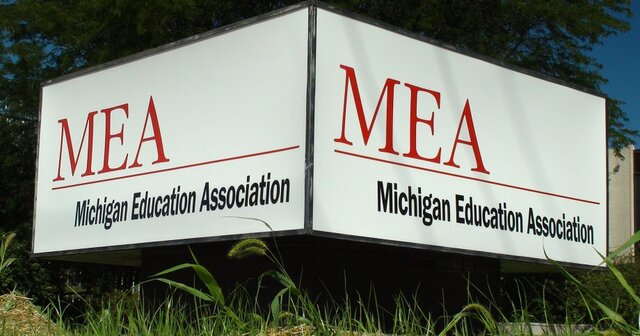

The Michigan Education Association, the state’s largest teachers union and second-largest union in the state, is listed by one union watcher as one of the most financially precarious across the nation.
Mike Antonucci, who writes about unions at the one-man Education Intelligence Agency, notes that the MEA is shedding members and facing huge financial liabilities. Antonucci writes this about Michigan’s NEA affiliate:
It isn’t surprising that Michigan Education Association membership was adversely affected when the state enacted a right-to-work law in 2013. But the union’s financial woes predate the law by many years.
MEA lost 6.7 percent of its active members in 2015, but the real problem is its failure to fund obligations to staff pensions and post-retirement health care. MEA’s net assets are an astonishing –$231.2 million. Mounting liabilities and decreasing membership are forcing the affiliate closer to disaster.
The MEA has been bleeding membership for more than a decade – the union has declined from more than 130,000 members in 2005 to 90,000 today. Here are the numbers of paying members over the past decade:
2007: 126,403
2008: 126,254
2009: 127,579
2010: 126,061
2011: 120,345
2012: 117,265
2013: 113,147
2014: 107,868
2015: 94,559
2016: 90,609
The MEA operates a defined benefit pension plan for its employees. This system is underfunded and has led the union to hike its dues to pay for the system’s liabilities. But it hasn’t been enough. Here are the union’s liabilities by year over the past decade:
2007: $77.6 million
2008: $105.2 million
2009: $191.0 million
2010: $199.1 million
2011: $179.9 million
2012: $224.1 million
2013: $181.5 million
2014: $206.2 million
2015: $304.1 million
2016: $313.4 million
The Michigan Education Association has repeatedly put its money behind one political party and issues supported almost exclusively by political liberals. The union has spent money on controversial ballot proposals – like one allowing local contracts to override state law and another hiking the gas tax. (Both failed by large margins.) In the meantime, the MEA spends very little directly representing members.
Permission to reprint this blog post in whole or in part is hereby granted, provided that the author (or authors) and the Mackinac Center for Public Policy are properly cited.
Get insightful commentary and the most reliable research on Michigan issues sent straight to your inbox.

The Mackinac Center for Public Policy is a nonprofit research and educational institute that advances the principles of free markets and limited government. Through our research and education programs, we challenge government overreach and advocate for a free-market approach to public policy that frees people to realize their potential and dreams.
Please consider contributing to our work to advance a freer and more prosperous state.

Donate | About | Blog | Pressroom | Publications | Careers | Site Map | Email Signup | Contact